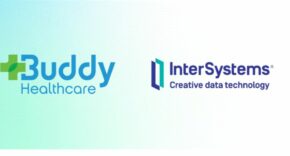
By Nish Kotecha, Chairman and Co-Founder of Finboot
In the globalised world we live in, entities such as the World Health Organization (WHO) have been established to ensure cooperation between different governments on global health-related issues. In the face of pandemics such as the one we are currently experiencing, these organisations need to have correct and accurate information in order to judge the best course of action: as we have observed over the last three months, fast, reliable scientific data, and the sharing and reporting of this data, is key to understanding, and therefore limiting, global outbreaks.
As stated by Yuval Noah Harari in his article for TIME, “while short-term quarantine is essential to stop epidemics… The real antidote to epidemic is not segregation, but rather cooperation.” This applies not only to social co-operation but also to collaborative technology, which would enable countries, organisations and individuals to share large volumes of data so that they can work together efficiently in times of crisis. However, in time-pressured situations where there is an overflow of information, the technologies and infrastructures currently in place are not up to the job of what is required of them, with limitations in areas such as full interoperability, data reliability and security. Ultimately, we don’t have the proper tools to understand what is happening at a local level, which means that we can’t sufficiently advise at a global one.
If, as stated in the TIME article, “real protection comes from the sharing of reliable scientific information”, there is an urgent need for a trusted ecosystem where data can be managed and shared, as this in turn would foster cooperation and collaboration. And that is where the potential of blockchain comes in. Just last week, it was announced that WHO is among a number of organisations collaborating on an open-data hub that will use blockchain technology to verify data relating to COVID-19, and we expect this to yield great results.
HEALTHCARE AND BLOCKCHAIN
There are numerous areas where we believe blockchain could benefit the industry, including the management of clinical data, interoperability, and supply chain and billing management, to name but a few. There are also significant cost-saving implications: according to a report by BIS Research, “the global healthcare market spend on blockchain is expected to hit $5.61 billion and could save the healthcare industry up to $100-150 billion per year by 2025.”
Given the sensitive nature of medical records, below we look at why blockchain is the ideal technology on which to build a global cooperative healthcare ecosystem:
Data reliability and security
The healthcare industry necessarily has to handle and store a colossal amount of data and this presents a significant challenge, with risks ranging from mismanagement of health records to security breaches.
The implementation of blockchain technology could mitigate these risks in two ways:
- First, by giving each patient a unique identifier, and creating a smart contract between patient and professionals. This would not only ensure that the data shared is reliable and accurate but would also increase efficiency, with faster diagnoses.
- Second, due to the inherent transparency of the technology, hospitals could guarantee that all patients’ health records were “tamper-proof”, while still ensuring the data’s privacy.
Interoperability
Obtaining access to a patient’s record can be a very time-consuming exercise, potentially setting back that patient’s treatment and care. It can also result in mismanagement of those records and, in worst case scenarios, misdiagnoses. The digitalisation of records through blockchain could reduce those inefficiencies by creating a network where reliable information is available instantly.
By nature, we refer to blockchain as a “decentralised” technology, which means that data is not stored in one server but is shared among several participants, storages and locations. As a result, health documents added to the blockchain can be accessed by all parties involved (who have the required permissions) in a transparent and trusted environment.
This application will facilitate the interoperability of record sharing between healthcare stakeholders with important information made available to them in a disintermediated and efficient way, while still ensuring patients’ privacy and security. Importantly, it could also promote cooperation among health professionals around the world.
MAPPING THE WAY TO A GLOBAL HEALTHCARE NETWORK
By leveraging blockchain technology, not just locally but at a global level, we could create a comprehensive and universal network where health information can be gathered and shared instantly.
For medical professionals and hospitals, having a secure and reliable database of health records would reduce the risk of misdiagnosis, ultimately resulting in optimisation of the treatment process.
Real interoperability is made possible through the digitalisation of health and medical records, unlocking opportunities far beyond the mere sharing of information. What if there was an administered private permissioned network where key stakeholders such as R&D labs and universities could upload data? A shared blockchain infrastructure and app layer could be a huge advantage because it would allow hospitals, the public administration and private companies such as insurance providers to efficiently cooperate and share solutions and insights. This transfer of instant and up-to-date data between health professionals globally could, for example, benefit research and optimise clinical trials.
We appreciate that creating a global healthcare ecosystem through blockchain technology would take time and face its own challenges, but it could help us better respond to similar – or worse – health threats in the future.











